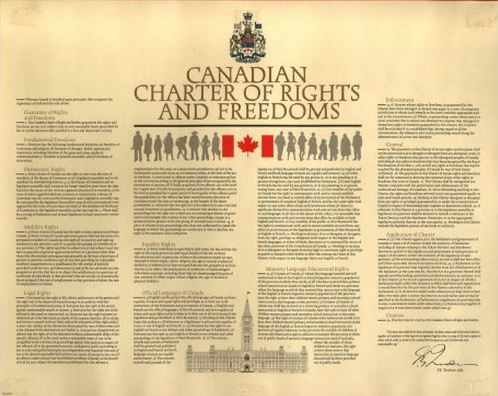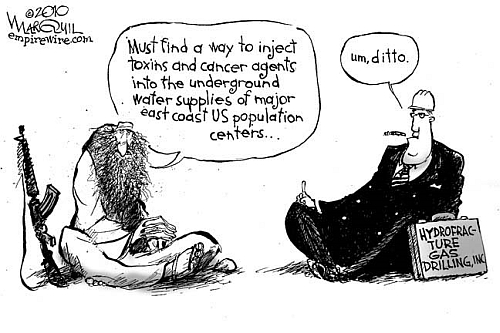Stephen Harper Failing To Protect Charter Rights, Lawyers Claim by Mike Blanchfield, The Canadian Press
November 26, 2014, Huffingtonpost.ca
The Harper government is falling short in its duty as a guardian of the Charter of Rights and Freedoms, the Canadian Bar Association will be told Friday in a major speech. Simon Potter, a past president of the association, is to deliver that scathing message in the keynote address to the day-long conference on the state of constitutional law in Canada.
The annual constitutional symposium by Canada’s top legalists on the Charter unfolds this year against a backdrop of unprecedented acrimony between the Harper government and the Supreme Court of Canada.
Prime Minister Stephen Harper’s office recently accused Chief Justice Beverley McLachlin of inappropriately attempting to make contact with him over the appointment of Marc Nadon to the Supreme Court, an appointment the high court went on to unanimously reject in a separate ruling.
Many in Canada’s legal community rushed to the defence of the chief justice and accused the Conservatives of engineering a smear campaign.
The government will again face more criticism Friday as the association recommends reforms to the selection process for Supreme Court judges in the wake of the Nadon affair. “The episodes we lived through with the nomination of Mr. Nadon and the comments which came out of the Prime Minister’s Office were not of the kind to foster respect of the judiciary,” Potter said in an interview.
“In fact, the goal was to foster disrespect for the judiciary — an unheard-of thing in Canada.”
Potter said his keynote address will reinforce a key point about the three branches of Canada’s government: that the executive branch (the PMO), the judiciary and Parliament all have a duty to protect the Charter, which enshrines the freedom of all Canadians.
“I ask the question: do we have cause for worry these days that maybe the executive isn’t being as serious about that duty as we would hope? And I conclude that the answer is yes, we do have cause for worry.”
In addition to the Nadon ruling, the Supreme Court has ruled against the government’s truth-in-sentencing act, its plans for Senate reform, and on Thursday in a historic ruling it recognized a First Nation’s title to a specific tract of land. That decision could pose a major headache for the Northern Gateway pipeline, which the government sees as crucial to its energy policy.
Potter said there’s a requirement for “respectful co-operation” between the three branches of government, but recent events show that has been jettisoned.
The government is either ignoring the advice of its legal advisers in the Justice Department or is telling them to hold their tongues, said Potter.
“Whether it’s Mr. (Justice Minister Peter) MacKay’s fault, or someone else’s fault, the fact is the attorney general has been brought away from doing his duty. His duty is to advise the government on these things, and the government has told him, ‘Don’t advise me.'”
Potter planned to raise the case of former Justice Department lawyer Edgar Schmidt, who is suing the federal government for allegedly failing to routinely evaluate whether proposed legislation violates the Charter. Schmidt alleges that government lawyers are instructed to warn the minister about possible Charter conflicts only when the violations are unambiguous, so that even if the probability is 95 per cent, there is still no need to red-flag the problem.
Potter said that amounts to the government abandoning part of its constitutional role. [The better to enable unaccountable corporate abuses and pollution?]
“If that is so, and Mr. Schmidt’s allegations are correct, what it means is that the executive has decided to take as many freedoms away from us as possible, rather than as few as possible,” said Potter. [How refreshing to see razor-sharp truth publicly stated! Bravo Mr. Potter and thank you.]
Kent Roach, a constitutional law professor at the University of Toronto, said the government and the Supreme Court will face further Charter showdowns when the court hears cases on mandatory minimum sentences in gun and drug cases. “There have obviously been a number of recent flashpoints and this could be another flashpoint,” Roach said. “The government is pretty determined not to allow that use of judicial discretion.” [Emphasis added]
[Refer also to:
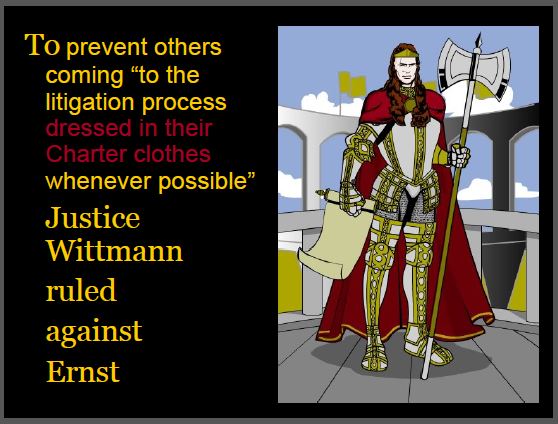
2014 09 15: Alberta fracking case could go to Supreme Court
May 2006: Bruce Jack in hospital after his methane and ethane contaminated water well exploded. Two industry gas-in-water testers were also seriously injured and hospitalized.
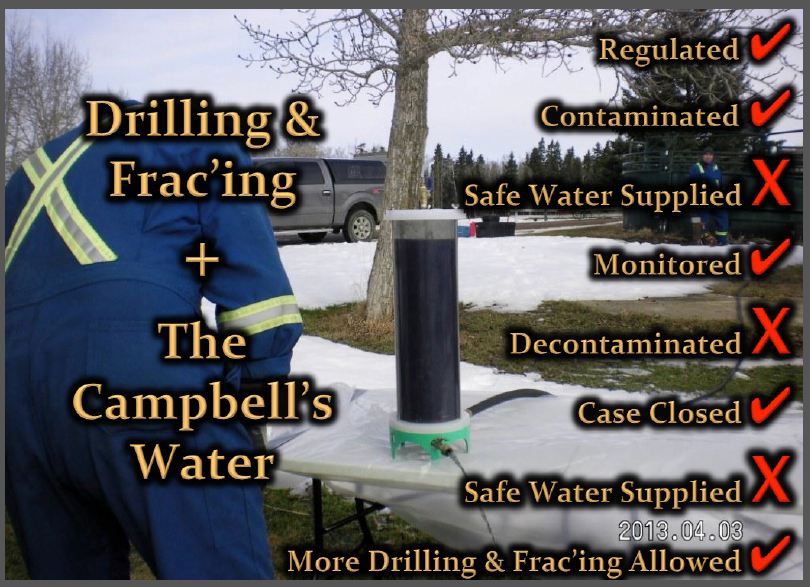
Crown counsel argued that Alberta landowner Jessica Ernst’s case could inspire ‘millions or billions of dollars worth of damages’ in subsequent lawsuits against the province.
An Alberta government lawyer argued in court this week that Jessica Ernst’s lawsuit on hydraulic fracturing and groundwater contamination should be struck down on the grounds that it would open a floodgate of litigation against the province.
“There could be millions or billions of dollars worth of damages,” argued Crown counsel Neil Boyle.
April 2014 Centennial for The Court of Appeal of Alberta: An interview with Chief Justice Catherine Fraser. Recapping major decisions; Canadian Charter of Rights and Freedoms entrenched in Constitution, Canada’s highest law [Why then did the Court of Appeal of Alberta rule that the energy regulator trumps the Charter Rights of Albertans?]
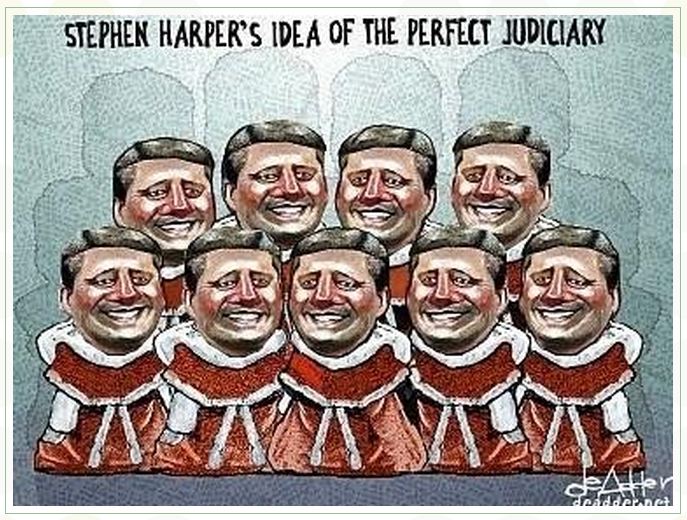
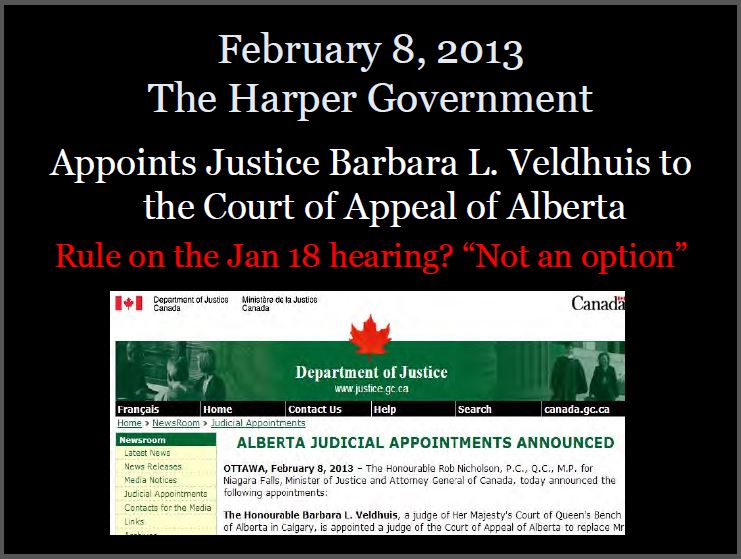
2012 04 15: Why this year could prove to be the Charters most controversial
2012 04 15: The Charter proves to be Canada’s gift to world
